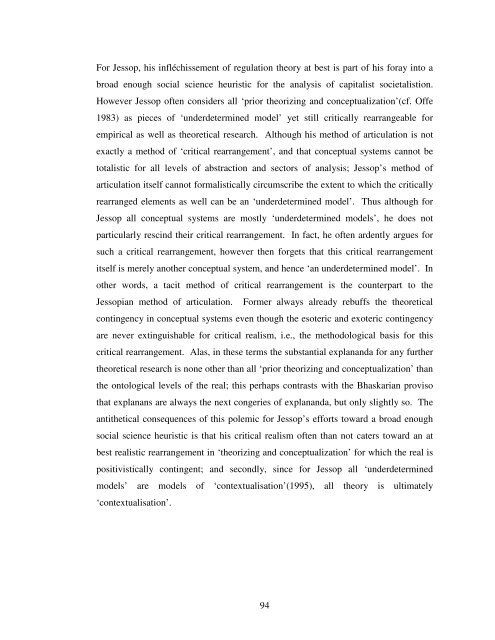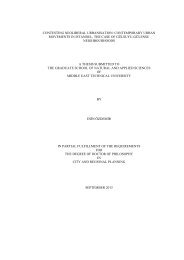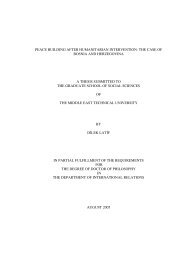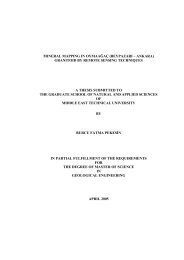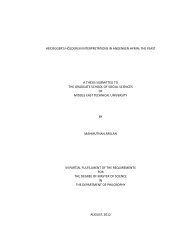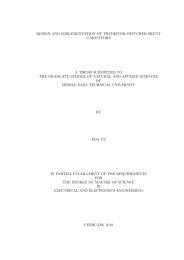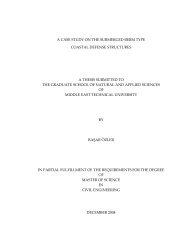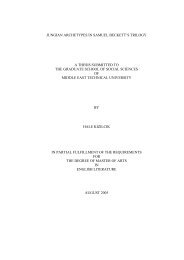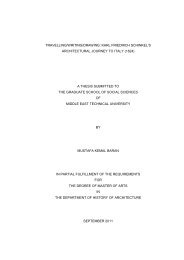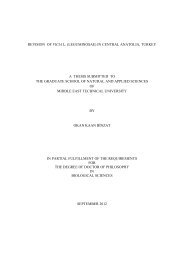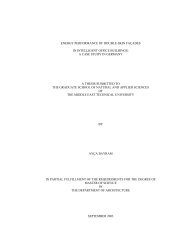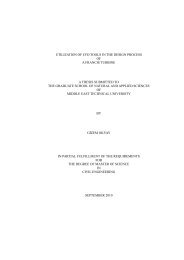View Original - Middle East Technical University
View Original - Middle East Technical University
View Original - Middle East Technical University
You also want an ePaper? Increase the reach of your titles
YUMPU automatically turns print PDFs into web optimized ePapers that Google loves.
For Jessop, his infléchissement of regulation theory at best is part of his foray into a<br />
broad enough social science heuristic for the analysis of capitalist societalistion.<br />
However Jessop often considers all ‘prior theorizing and conceptualization’(cf. Offe<br />
1983) as pieces of ‘underdetermined model’ yet still critically rearrangeable for<br />
empirical as well as theoretical research. Although his method of articulation is not<br />
exactly a method of ‘critical rearrangement’, and that conceptual systems cannot be<br />
totalistic for all levels of abstraction and sectors of analysis; Jessop’s method of<br />
articulation itself cannot formalistically circumscribe the extent to which the critically<br />
rearranged elements as well can be an ‘underdetermined model’. Thus although for<br />
Jessop all conceptual systems are mostly ‘underdetermined models’, he does not<br />
particularly rescind their critical rearrangement. In fact, he often ardently argues for<br />
such a critical rearrangement, however then forgets that this critical rearrangement<br />
itself is merely another conceptual system, and hence ‘an underdetermined model’. In<br />
other words, a tacit method of critical rearrangement is the counterpart to the<br />
Jessopian method of articulation. Former always already rebuffs the theoretical<br />
contingency in conceptual systems even though the esoteric and exoteric contingency<br />
are never extinguishable for critical realism, i.e., the methodological basis for this<br />
critical rearrangement. Alas, in these terms the substantial explananda for any further<br />
theoretical research is none other than all ‘prior theorizing and conceptualization’ than<br />
the ontological levels of the real; this perhaps contrasts with the Bhaskarian proviso<br />
that explanans are always the next congeries of explananda, but only slightly so. The<br />
antithetical consequences of this polemic for Jessop’s efforts toward a broad enough<br />
social science heuristic is that his critical realism often than not caters toward an at<br />
best realistic rearrangement in ‘theorizing and conceptualization’ for which the real is<br />
positivistically contingent; and secondly, since for Jessop all ‘underdetermined<br />
models’ are models of ‘contextualisation’(1995), all theory is ultimately<br />
‘contextualisation’.<br />
94


